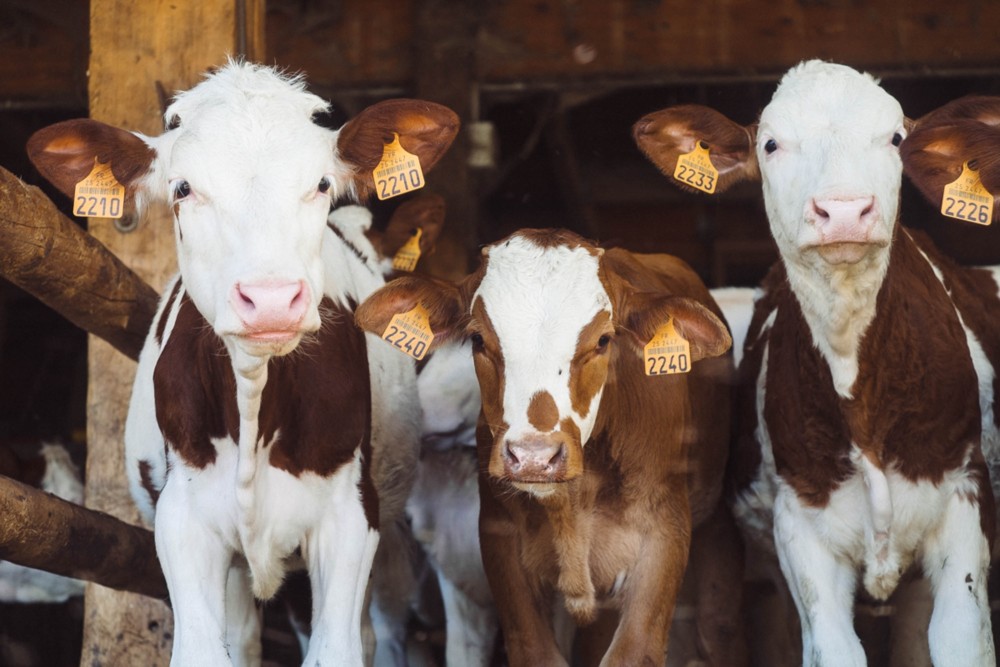
Photo by Annie Spratt on Unsplash
by Diana O. Potter, VEGWORLD Senior Editor
As the coronavirus COVID-19 continues to claim thousands of victims in the U.S., the spotlight has increasingly focused on workers in the nation’s meat-processing plants. Their now-revealed unsanitary and highly contagious working conditions, and their high incidence of COVID-19 that has led to widespread sickness and over 20 deaths so far, at first resulted in numerous plant closings.
But not for long. As of course it was. You likely have heard that, thanks to a presidential executive order, meat-plant workers are being forced back to their jobs despite their demonstrated high risk of getting sick and even dying. They must continue to work in close proximity, side-by-side, breathing in animal-flesh particulates and other foul matter that can transmit the disease, or lose their jobs.
Because 80% of the meat-processing workforce is made up of undocumented workers and refugees, they are essentially invisible to lawmakers – and thus highly vulnerable to corporate exploitation.
The League of United Latin American Citizens (LULAC), America’s largest Latino civil-rights organization now in its 91 st year, is calling on consumers to boycott meat on Mondays in May to bring awareness to these endangered workers’ plight.
“To confront the gross negligence of the meat corporations and government officials from both political parties, LULAC is calling for ‘Meatless May Mondays,’” LULAC President Domingo Garcia said. “We are asking our community of 60 million members, and the entire country, to stand with essential workers and not purchase or consume any meat products once a week to highlight the need for protections for these workers. Until the meat industry, federal, and state governments protect the lives of essential workers at all meat processing facilities in a federally mandated and verifiable manner, LULAC will call for boycotts of meat products.”
An Old Idea Takes a New Shape…
The idea of meatless days goes at least as far back as World War I, when food rationing was instituted here. There were Meatless Tuesdays and Wednesdays and Porkless Thursdays and Saturdays along with days for not eating other staples, such as wheat.
Today, Meatless Monday is an international organization, based in the U.S., that sponsors many different “Monday” campaigns in collaboration with the Johns Hopkins Bloomberg School of Public Health Center for a Livable Future. The organization encourages people to not eat meat on Mondays to help not only their health, but the health of the planet.
Sound familiar? Of course. It’s the bedrock belief of veganism, not just on Mondays but every day. And if they aren’t eating meat, what are they most likely to eat instead? Of course. Plants!
…and Suggests Yet Another Way to Encourage Plant-Based Living
The disclosure of the spread of COVID-19 in people working in meat processing plants, and of the often dirty and generally unhealthy conditions there, has surely made an impression among meat-eating folk. There’s nothing new about those conditions, which have been exposed and written about many times (think of Upton Sinclair’s book from the 1900s, The Jungle), but just as often covered up. What if this added risk of COVID-19 contagion caused more meat-eaters to consider joining the growing plant-based movement?
Here are just a few reasons why, paradoxically, the tragedy of the meat workers could have this beneficial result:
Fewer people eating meat must translate into fewer animals slaughtered to provide it.
There is evidence that animal and meat transmission of COVID-19 to humans is real. Speaking personally, this is yet another reason why I won’t eat meat, which could possibly transmit the disease from workers’ handling it or the meat itself. (Recall my article in VEGWORLD about the wet market in Wuhan, China, where the infection is said to have started. See link at end of story.)
Some people may start not eating meat in solidarity with the workers.
While never losing sight of the need to support and protect the workers in America’s meat processing plants, we can also hope that these more positive benefits will result. Meatless May Mondays is yet another step on that long and hopeful road.
Story link: “Coronavirus Spotlighting Meat as Transmitter of Infection”

